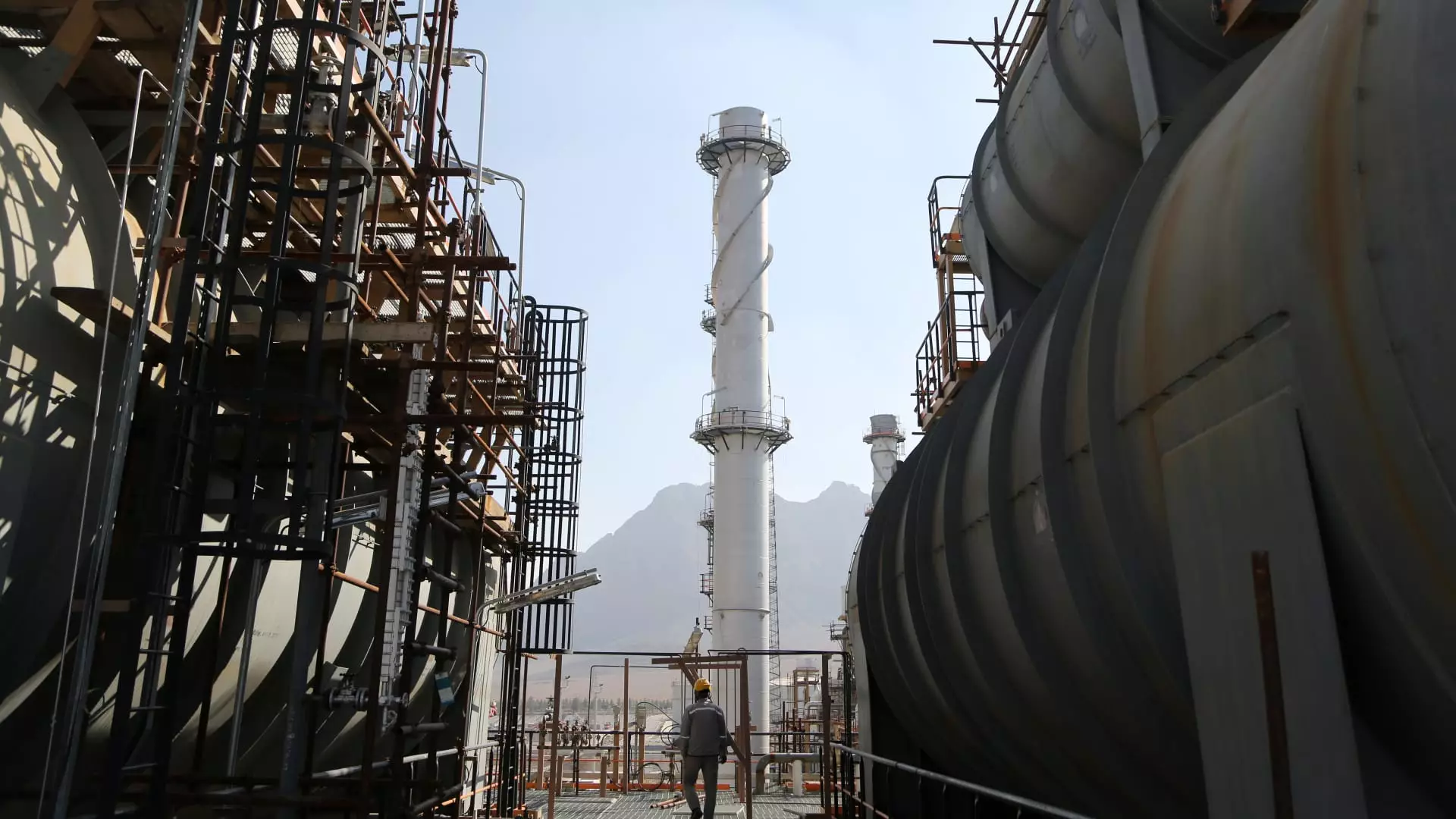Recent events in the Middle East have inflicted a seismic shift in the global oil market, primarily due to Iran’s ballistic missile assault on Israel. This incident is not merely a tactical engagement; it symbolizes a deeper escalation of a conflict that has long been marked by volatility and instability. The attack was purportedly a response to Israel’s elimination of high-profile figures within Hezbollah and Iranian military ranks in Lebanon. The conflict, previously perceived through the lens of geopolitical risk fatigue, has now become a tangible threat to oil supplies, prompting experts to warn of potential market disruptions.
The ramifications of this newfound aggression are significant. It has instilled fear among oil traders who had, until now, grown accustomed to ignoring the risks associated with the Middle East and Ukraine. Analysts like Saul Kavonic from MST Marquee have highlighted how the current dynamics could disrupt up to 4% of the global oil supply. The specter of double-digit price spikes seems plausible, should tensions escalate further and military action target Iranian oil facilities.
The missile strike came on the heels of Israel augmenting its military presence along the Lebanese border, which underscores a strategic pivot towards Iran and Hezbollah. As Israel refocuses its military endeavors, the potential for conflict to engulf Iranian oil infrastructure becomes very real. This could unleash a wave of restrictions on Iranian oil exports, exacerbating global supply concerns.
Iran, as a key member of the Organization of the Petroleum Exporting Countries (OPEC), produces around four million barrels of oil a day. Any disruption in its output can have far-reaching consequences for global oil prices. Bob McNally, from Rapidan Energy Group, interprets the situation as entering a new, more pernicious phase, where retaliation from Israel is anticipated to be significant and potentially disruptive.
In the immediate aftermath of the missile strike, oil prices exhibited noticeable fluctuations. Initially rising over 5%, the prices shifted to a sustainable increase of around 2%. Current prices for Brent crude hover just above $74 per barrel, while West Texas Intermediate (WTI) futures are near $71. The market’s mixed reactions reflect a cautious optimism as well as a deep-seated uncertainty regarding future supply and pricing.
Andy Lipow from Lipow Oil Associates highlights the underlying forces at play. While international tensions mount, U.S. oil production continues to ramp up, providing some cushion against supply shocks. However, weak demand from China and an interconnected web of geopolitical risks could quickly change this balance, leading to price surges reminiscent of previous crises.
As analysts like Ross Schaap from GeoQuant suggest, the prediction of further significant events stemming from these tensions carries weight. Political risk scores have elevated, indicating that the potential for more dramatic escalations is tangible. The implication for the energy market is substantial: increased volatility could become the norm as operators in the oil sector navigate not only the physical realities of supply but also the emotional and psychological repercussions of conflict.
The likelihood of continued military actions creates a precarious environment for energy security globally. Josh Young, chief investment officer at Bison Interests, points out that sustained disruptions to Iranian exports could lead to a dramatic rise in oil prices, potentially exceeding the $100-per-barrel threshold. This scenario not only threatens to destabilize fuel markets but could also contribute to broader economic instability, further complicating the international landscape.
As the geopolitical tides shift, it becomes clear that oil watchers and market participants must remain vigilant to the developments emanating from the Middle East. The intertwining of military actions with energy supply dynamics emphasizes the critical nature of political stability for market health. Energy stakeholders should brace themselves for potential fluctuations in the coming months as the situation evolves. Comprehending these dynamics will be essential for navigating the complexities that lie ahead in the global oil market. The analysis of current events underscores how closely linked geopolitics and global energy supply truly are, reinforcing the crucial role of strategic foresight in this volatile arena.

Leave a Reply